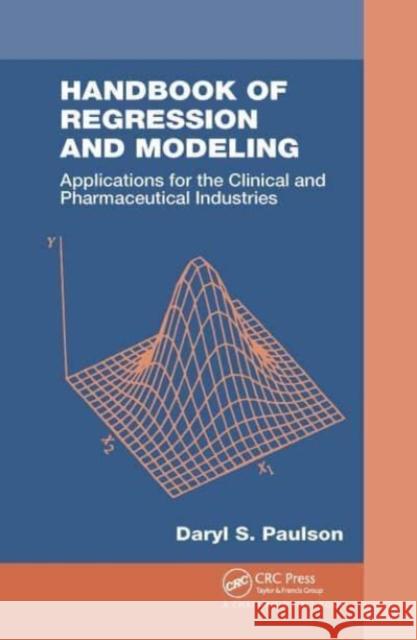Handbook of Regression and Modeling: Applications for the Clinical and Pharmaceutical Industries » książka
Handbook of Regression and Modeling: Applications for the Clinical and Pharmaceutical Industries
ISBN-13: 9781032477855 / Angielski / Miękka / 2023 / 520 str.
Handbook of Regression and Modeling: Applications for the Clinical and Pharmaceutical Industries
ISBN-13: 9781032477855 / Angielski / Miękka / 2023 / 520 str.
(netto: 214,52 VAT: 5%)
Najniższa cena z 30 dni: 216,55
ok. 22 dni roboczych.
Darmowa dostawa!
Carefully designed for use by clinical and pharmaceutical researchers and scientists, Handbook of Regression Analysis and Modeling explores statistical methods that have been adapted into biological applications for the quickly evolving field of biostatistics. The author clearly delineates a six-step method for hypothesis testing using data that mimics real life. Relying heavily on computer software, he includes exploratory data analysis to evaluate the fit of the model to the actual data. The book presents a well-defined procedure for adding or subtracting independent variables to the model variable and covers how to apply statistical forecasting methods to the serially correlated data characteristically found in clinical and pharmaceutical settings. The stand alone chapters allow you to pick and choose which chapter to read first and home in on the information that fits your immediate needs. Each example is presented in computer software format. The author uses MINITAB in the book but supplies instructions for SAS and SPSSX, making the book easily adaptable to individual situations. Although written with the assumption that the reader has knowledge of basic and matrix algebra, the book supplies a short course on matrix algebra in the appendix for those who need it. Covering more than just statistical theory, the book provides advanced methods that you can put to immediate use.
Carefully designed for use by clinical and pharmaceutical researchers and scientists, Handbook of Regression Analysis and Modeling explores statistical methods that have been adapted into biological applications for the quickly evolving field of biostatistics. The author clearly delineates a six-step method for hypothesis testing using data that mimics real life. Relying heavily on computer software, he includes exploratory data analysis to evaluate the fit of the model to the actual data.
The book presents a well-defined procedure for adding or subtracting independent variables to the model variable and covers how to apply statistical forecasting methods to the serially correlated data characteristically found in clinical and pharmaceutical settings. The stand alone chapters allow you to pick and choose which chapter to read first and home in on the information that fits your immediate needs. Each example is presented in computer software format. The author uses MINITAB in the book but supplies instructions for SAS and SPSSX, making the book easily adaptable to individual situations.
Although written with the assumption that the reader has knowledge of basic and matrix algebra, the book supplies a short course on matrix algebra in the appendix for those who need it. Covering more than just statistical theory, the book provides advanced methods that you can put to immediate use.











